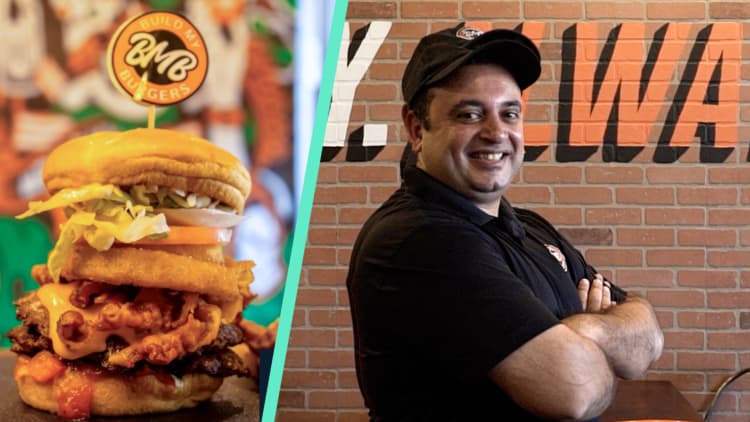Sometimes, striving for perfection can stunt your success — or, at least, keep you from landing a six-figure deal on ABC's "Shark Tank."
That's what happened to Heather Kelly on last week's episode of the show. Kelly, 36, is the founder of Anchorage, Alaska-based Heather's Choice, which sells lightweight, packable meals — just add hot water — and ready-to-eat snacks for outdoor adventurers.
An adventurer herself, Kelly started the company in 2014, and raised $1.3 million in fundraising by the time of the episode's taping, she said. Heather's Choice had its first million-dollar revenue year in 2022, indicating an upward trajectory, Kelly noted.
But the company wasn't profitable, due primarily to the high costs of manufacturing in Alaska and shipping to the rest of the U.S. — and Heather's Choice was $1 million in debt, said Kelly.
"I have been actively fundraising for about nine months now, and the consistent feedback has been [that] the market opportunity for the meals isn't big enough," she added.
'You've got to get out of your own head'
Kelly asked the show's investor judges for $250,000 in exchange for 10% of her company, to help scale her company's snacks — called "packaroons" — to a co-packaging model.
The judges quickly offered Kelly some stark feedback: The snacks weren't worth strategizing over, when the meals were "what stands out," as Mark Cuban put it. "They taste fantastic," Lori Greiner added.
Instead of building upon the smaller and cheaper packaroon, the investors advised Kelly to market her meals to a wider audience, like students and working professionals. "You are just very laser-focused on this target customer, which is you, and I get that. But there's a huge market out there of other consumers who would love this food," guest investor Candace Nelson said.
Kelly expressed hesitancy. "I tried the co-packing route [for the meals] on three separate occasions, and I couldn't hold the product quality," she said.
After some deliberating, all five judges declined to extend her an investment offer, saying Kelly was stunting her own growth by not expanding her consumer base.
"I see somebody afraid to say 'yes.' There are so many opportunities around you where people would buy your product. But you have to make it yourself. You won't use a co-packer because it doesn't taste quite right to you," Cuban said. "It's on you, Heather. You've got to get out of your own head."
'I really heard what they said about being a perfectionist'
While leaving the show, Kelly reflected on the investors' advice.
"I really heard what they said about being a perfectionist. They pretty well hit the nail on the head there," she said. "I'm not willing to compromise on quality, so I just need to continue to come up with creative solutions."
Like Kelly, many people deal with with a similar battle for perfection. About 85% of young people say they have perfectionist tendencies, a University of Oxford study published in 2022 found. It can negatively impact your mental health, and potentially lead to depression and anxiety.
However, since the episode's taping, Kelly has taken some of the judges' advice to heart. Heather's Choice plans to broaden its consumer base and relocate to Ashland, Oregon, where Kelly and her team will "manufacture their products in a 15,000 square foot food production facility," the company told CNBC Make It in a statement on Tuesday.
"Of course, we would have been elated to get a deal on 'Shark Tank,'" Kelly said in the statement. "But now we're focused on using this national exposure as a springboard for expansion into a new-to-us market."
Disclosure: CNBC owns the exclusive off-network cable rights to "Shark Tank."
Want to land your dream job in 2024? Take CNBC's new online course How to Ace Your Job Interview to learn what hiring managers are really looking for, body language techniques, what to say and not to say, and the best way to talk about pay. Get started today and save 50% with discount code EARLYBIRD.



